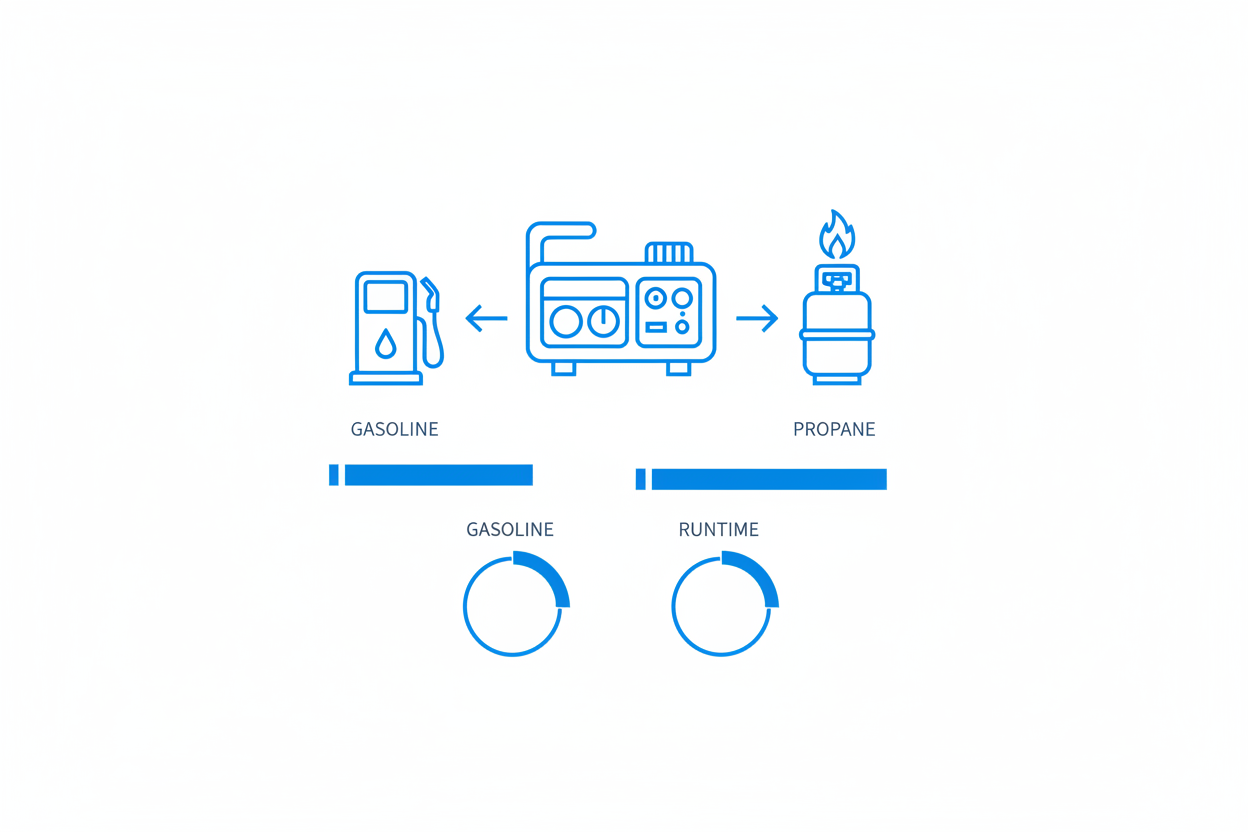Gas vs Propane Camping Generators: Which Fuel Is Better?
Camping generators often support both gasoline and propane. Each fuel behaves differently in power output, storage life, and real-world convenience.
Understanding these differences helps campers choose the best option for their trips.

Gasoline vs Propane: Key Performance Differences
Gasoline provides the highest wattage output for inverter generators. Propane delivers cleaner combustion with slightly lower power but better long-term stability.
- Gasoline: maximum power output, high energy density.
- Propane: lower wattage but cleaner burning.
- Both: reliable for camping when used correctly.
Energy density directly influences the runtime and surge capacity during peak loads.
Power Output Differences
Gasoline typically produces ten to fifteen percent more wattage than propane. This difference is most noticeable during high-draw tasks like brewing coffee or pumping air.
Propane still supports most camping devices because many loads remain under one hundred watts.
Runtime and Efficiency
Propane burns efficiently and offers steady long-duration performance. Campers using lights, chargers, and coolers often prefer propane for predictable runtime.
Gasoline supports strong surges but may consume more fuel during repeated high-load activity.
Fuel Storage and Shelf Life
Propane stores indefinitely in sealed cylinders without degrading. Gasoline begins breaking down within months and requires stabilizer for long-term storage.
Long shelf life makes propane ideal for emergency use and multi-day camping trips.
Cold Weather Behavior
Gasoline performs well in low temperatures and supports easier cold starts. Propane output may drop slightly in freezing conditions due to pressure changes.
Campers in winter environments often choose gasoline for reliable starting performance.
Safety and Clean Operation
Propane produces cleaner exhaust with lower carbon buildup inside engines. Gasoline leaves more deposits and may require more frequent maintenance.
Both fuels must be used with proper ventilation and distance in any campsite.
Convenience During Camping Trips
Propane is simple to transport, spill-free, and easy to connect during outdoor activities. Gasoline is widely available at every fuel station, offering convenience during long drives.
Dual-fuel generators give campers flexibility to switch based on availability and power needs.
Which Fuel Should You Choose?
Gasoline is ideal for maximum power output and cold-weather starts. Propane excels in clean operation, long storage, and steady runtime.
Most campers benefit from carrying both fuels and switching depending on conditions.
Conclusion
Both gasoline and propane serve different strengths for camping generators. Understanding their performance differences ensures reliable and efficient outdoor power.
